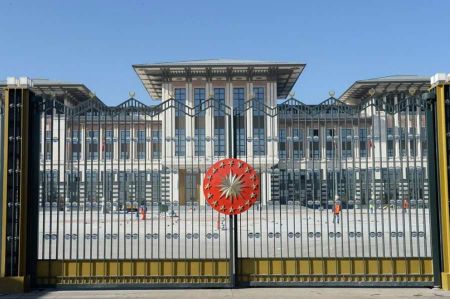Erdogan decides name change: Turkey - Türkiye
- Written by Portal Editor
Ankara also wants to use only the Turkish country name in foreign languages in the future. The government wants to use this to improve the country's reputation. However, the move also raises many questions.
Anyone who has hitherto typed in the English country name of Turkey in a search engine or translation service has not been suggested the proud red and white flag with crescent moon and star as a pictogram or translation term, but a turkey emoji or the word "turkey" itself, which the automatic translation services understand the word "Turkey" is often mistaken in the ornithological rather than in the geographical sense. One can easily imagine how strange even the most serious text comes across when a geopolitical actor is described as a chicken bird.
"Hello Türkiye" no longer "hello Turkey"
But that should now be the end of it. A few days ago, President Recep Tayyip Erdogan's communications office launched a campaign aimed at promoting the use of the Turkish name for the country, Türkiye, in other languages as well. The starting signal is an elaborately produced advertising film. In it, foreign tourists appear in different parts of the country, saying "Hello Türkiye" in English but with the accent of their home country.
Efforts to influence language use go far beyond the playful. For a long time now, many Turkish ministries and authorities have only used the term Türkiye in foreign-language texts, including at international conferences and in correspondence with other countries.
Since December, this has also been officially stipulated by a presidential decree. Erdogan explained that the term Türkiye is best suited to expressing the nation's culture, civilization and values. Export products must also be labeled "made in Türkiye". The Association of the Turkish Export Industry TIM decided this two years ago.
Expression of Turkey's independence
 The aim of Turkish politics is to promote the country's brand, identity and reputation, explains Erdogan's head of communications, Fahrettin Altun. Turkey is not a country that is defined from outside, but one that shapes its own definitions. The use of a term from one's own national language expresses this. The claim to be an independent actor of supra-regional importance is central to understanding President Erdogan's politics.
The aim of Turkish politics is to promote the country's brand, identity and reputation, explains Erdogan's head of communications, Fahrettin Altun. Turkey is not a country that is defined from outside, but one that shapes its own definitions. The use of a term from one's own national language expresses this. The claim to be an independent actor of supra-regional importance is central to understanding President Erdogan's politics.
In the future, Türkiye is to be used in all foreign languages, including German. However, the focus is not only on the English language because of its international importance. In a report on Erdogan's decree in December, the state news broadcaster TRT explicitly referred to the unfavorable associations associated with the ambiguous term "turkey".
It is rightly pointed out that turkey has nothing to do with Turkey. The bird, which originated in North America, owes its English name to its resemblance to the guinea fowl, which was imported to Europe via the Ottoman Empire and was therefore also referred to as the "Turkish chicken".
"Measure for the home audience"
Questions of national pride are taken extremely seriously in Turkey. Disrespectful behavior towards the national flag, for example, is no small matter and can be punished with imprisonment. Nevertheless, there are also mocking reactions to the prescribed use of language in social networks. Government critics also see it as an attempt to distract from the economic crisis.
Natasha Grand also believes that the name change is aimed primarily at the home crowd. "This is a political-ideological measure that is being presented as a way of strengthening the national brand," says the London communications expert, whose Institute for Identity advises states on their international presence.
Successful country branding creates associations that are as catchy as possible, Grand explains to various newspapers. A word like Türkiye, which poses high hurdles in pronunciation and spelling, tends to achieve the opposite. "In this respect, the step also shows a lot of self-confidence."
Will there be an official name change?
 It is not uncommon for countries to change their names. The most recent example is North Macedonia. By adding a geographic prefix, the south-eastern European country was able to settle the decades-long dispute with Greece.
It is not uncommon for countries to change their names. The most recent example is North Macedonia. By adding a geographic prefix, the south-eastern European country was able to settle the decades-long dispute with Greece.
A new name is often intended to mark a break with the – mostly colonial – past. The former Swaziland has been called Eswatini since 2018. Zimbabwe (Rhodesia) and Burkina Faso (Upper Volta) have also changed their names. In Asia, Myanmar (Burma) is an example.
However, it is unclear whether Turkey is also aiming for an official name change registered with the United Nations in addition to a change in language use. The information office in Ankara explains on request that no information is currently available.
Please read as well:
Hike to Goseck Castle – starting point at the sun observatory
